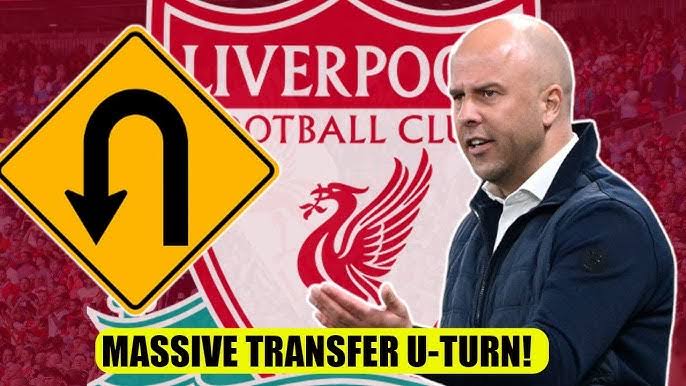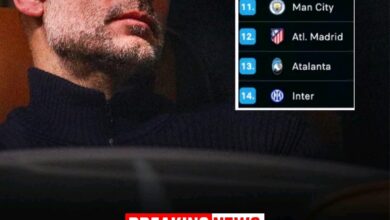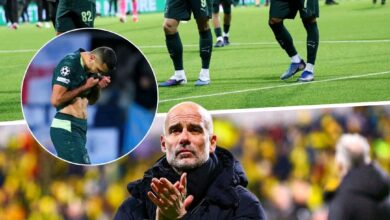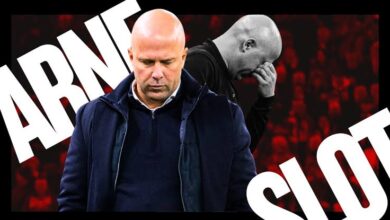Summer Transfer Window 2025: Major Updates on Liverpool, Arsenal, and Manchester United Targets

The 2025 summer transfer window continues to generate headlines across Europe’s elite football clubs, with several high-profile moves dominating the landscape. Leading transfer journalist Fabrizio Romano has provided crucial updates on some of the most significant potential transfers, offering insights into the strategic moves being made by Liverpool, Arsenal, and Manchester United as they seek to strengthen their squads for the upcoming season
Liverpool’s search for attacking reinforcement has taken a fascinating turn, with the Merseyside club pursuing a two-pronged approach that demonstrates both ambition and pragmatism. The Reds have identified two primary targets to bolster their forward line: Newcastle United’s Alexander Isak and Eintracht Frankfurt’s Hugo Ekitike, with Romano revealing the intricate strategy behind their pursuit.
The Swedish international Alexander Isak has emerged as Liverpool’s dream target, with the club reportedly preparing to test Newcastle’s resolve with a staggering £120 million bid. This valuation reflects not only Isak’s exceptional talent but also the premium price attached to prizing away key players from Premier League rivals. The 25-year-old striker has been in sensational form since his move to St. James’ Park, combining pace, technical ability, and clinical finishing in a way that has caught the attention of Europe’s elite clubs.
However, Newcastle United’s stance remains unwavering. The Magpies have consistently maintained their “not for sale” position throughout the summer transfer window, recognizing Isak’s importance to their project and their ambitions for European qualification. This resistance has forced Liverpool to activate their contingency plan, turning their attention to Hugo Ekitike, who has long been on their radar.
The French striker represents a more attainable target, though no less exciting in terms of potential. Ekitike’s performances in the Bundesliga have marked him as one of Europe’s most promising young forwards, possessing the physical attributes and technical skills that align perfectly with Liverpool’s high-intensity playing style. The 23-year-old’s ability to operate across the front line, combined with his pace and pressing ability, makes him an ideal fit for Jurgen Klopp’s successor’s tactical vision.
Romano’s latest update reveals that Liverpool have moved decisively for Ekitike, reaching a personal agreement with the player on a six-year contract. This development represents a significant breakthrough in their pursuit, as securing the player’s commitment often proves to be half the battle in modern transfer negotiations. The proposed deal structure suggests Liverpool’s long-term vision for Ekitike, viewing him not just as an immediate solution but as a cornerstone of their attack for years to come.
The financial aspects of the Ekitike deal highlight the current transfer market dynamics. Liverpool’s bid of approximately €80 million was initially rejected by Eintracht Frankfurt, demonstrating the German club’s recognition of their asset’s value and their belief that a bidding war could drive the price even higher. This rejection, while disappointing for Liverpool, is not unexpected given Frankfurt’s strong negotiating position and their lack of immediate pressure to sell.
Interestingly, Newcastle United had previously shown interest in Ekitike, with a €78 million bid of their own being rejected earlier in the window. However, Liverpool’s entry into the race appears to have changed the dynamics significantly. The player’s preference for a move to Anfield, combined with Liverpool’s prestigious reputation and their ability to offer regular Champions League football, has seemingly eliminated Newcastle from contention
Arsenal’s summer transfer activity has been dominated by their relentless pursuit of Viktor Gyokeres, the Swedish striker who has taken European football by storm with his performances for Sporting CP. The Gunners’ interest in the 26-year-old represents a clear statement of intent as they seek to add more firepower to their attacking options and maintain their challenge for major honors.
Gyokeres’ rise to prominence has been meteoric, with his goal-scoring exploits in the Portuguese Primeira Liga earning him recognition as one of Europe’s most lethal forwards. His combination of physical presence, intelligent movement, and clinical finishing has made him a natural target for clubs seeking to strengthen their attacking options. For Arsenal, he represents the type of proven goalscorer who could provide the cutting edge needed to compete at the highest level.
The negotiations between Arsenal and Sporting CP have reached a critical juncture, with both clubs working intensively to resolve the remaining details of the transfer. Romano’s updates suggest that the fundamental structure of the deal is in place, but the devil, as always, is in the details. The ongoing dispute over bonus payments and add-ons illustrates the complexity of modern football transfers, where every clause and contingency must be carefully negotiated
The presence of Gyokeres’ representatives in London underscores the serious nature of the discussions and the commitment from all parties to reach a resolution. These face-to-face meetings often prove crucial in breaking deadlocks and finding creative solutions to contentious issues. The fact that negotiations are taking place in London, rather than Lisbon, suggests that Arsenal are taking the lead in pushing for a conclusion to the talks.
Arsenal’s frustration with Sporting’s negotiating approach has been evident throughout the process. The Portuguese club’s attention to detail and their insistence on protecting their interests in every aspect of the deal reflects their understanding of Gyokeres’ value and their determination to extract maximum value from his departure. This thorough approach, while potentially frustrating for the buying club, is indicative of Sporting’s professional approach to player trading.
The player’s unwavering commitment to joining Arsenal has been a crucial factor in maintaining momentum in the negotiations. Despite reported interest from Saudi Arabian clubs offering significantly higher wages, Gyokeres has remained focused on his Arsenal ambitions. This loyalty to the project at the Emirates Stadium demonstrates the pulling power of Champions League football and the opportunity to compete for major trophies in one of Europe’s most competitive leagues.
The Swedish striker’s dream of playing for Arsenal reflects the club’s continued appeal to top-tier talent, despite their recent trophy drought. The combination of London’s attractiveness as a destination, Arsenal’s rich history, and their promising young squad under Mikel Arteta continues to make them an attractive proposition for ambitious players seeking to elevate their careers.
Manchester United’s approach to the goalkeeper position has been the subject of intense speculation throughout the summer window, with Emiliano Martinez emerging as a potential target. However, Romano’s latest update provides clarity on the Red Devils’ actual level of interest in the Aston Villa and Argentina international.
The revelation that Manchester United have not submitted any official bid for Martinez, despite widespread media speculation, highlights the difference between exploratory interest and concrete transfer action. This distinction is crucial in understanding the realities of the modern transfer market, where clubs routinely monitor numerous players without necessarily pursuing formal negotiations.
United’s conversations with Martinez’s representatives, which took place in June, represent standard due diligence rather than active pursuit. These discussions allow clubs to understand a player’s situation, including their contractual status, wage demands, and personal preferences, without committing to a formal transfer approach. Such information gathering is routine practice for top clubs as they maintain awareness of potential opportunities in the market.
The timing of these discussions is significant, occurring before Manchester United’s priorities for the summer became fully crystallized. As the window has progressed, it appears that other positions have taken precedence in their transfer planning, with resources being directed toward areas deemed more critical for the team’s immediate needs.
Martinez’s potential openness to joining Manchester United, despite their absence from European competition this season, demonstrates the enduring appeal of the club’s brand and history. This willingness to consider the move reflects the player’s ambition and his recognition of United’s potential for future success, even during a period of relative decline in their fortunes.
The focus on other targets, particularly Bryan Mbeumo, illustrates Manchester United’s pragmatic approach to the transfer market. Rather than pursuing the most high-profile names, the club appears to be prioritizing players who can address specific tactical needs and provide good value for money. This approach suggests a more thoughtful and strategic approach to squad building, moving away from the scattergun approach that has characterized some of their recent transfer activity.
The summer of 2025 has been characterized by inflated transfer fees and intense competition for the most sought-after players. The figures being discussed for players like Isak (£120 million) and Ekitike (€80 million) reflect the current market dynamics, where clubs are willing to pay premium prices for players who can make an immediate impact.
This inflation in transfer fees can be attributed to several factors, including the increased revenue streams available to top clubs, the financial recovery following the COVID-19 pandemic, and the growing importance of success in generating commercial opportunities. Clubs are increasingly viewing transfer fees as investments in their future earning potential, justifying higher expenditure based on projected returns.
The competition between clubs for the same targets has intensified, with players like Ekitike attracting interest from multiple Premier League clubs simultaneously. This competitive environment drives up prices and gives selling clubs greater leverage in negotiations, as they can afford to reject initial offers in the expectation of higher bids.
The role of player preference in modern transfers cannot be overstated. The cases of both Ekitike and Gyokeres demonstrate how a player’s personal choice can override purely financial considerations. This shift in power toward players reflects their increased agency in the modern game and the recognition that forced moves rarely benefit any party involved
The transfer activities of Liverpool, Arsenal, and Manchester United must be viewed within the context of Financial Fair Play regulations and the need for sustainable squad building. The substantial sums being discussed require careful financial planning and consideration of long-term implications for each club’s financial health.
Liverpool’s approach to the Ekitike deal, including the proposed six-year contract, demonstrates their commitment to amortizing the transfer fee over a longer period, thereby reducing the immediate impact on their accounts. This financial engineering has become standard practice among top clubs as they seek to balance competitive investment with regulatory compliance.
Arsenal’s prolonged negotiations with Sporting CP over bonus structures reflect the importance of managing financial risk in high-value transfers. The add-ons and performance-related payments being discussed allow clubs to link their financial exposure to on-field success, providing protection against underperformance while rewarding achievement. Manchester United’s measured approach to the Martinez situation suggests a club learning from previous transfer mistakes. The emphasis on due diligence and strategic planning over impulsive purchases represents a maturation in their transfer approach that could serve them well in the long term
Behind the headlines and financial figures, the human stories of these potential transfers provide insight into the modern game’s personal dynamics. Gyokeres’ determination to join Arsenal, despite potentially lucrative alternatives, speaks to the enduring appeal of sporting ambition over pure financial gain.
The role of agents and representatives in facilitating these moves has become increasingly sophisticated, with negotiations requiring expertise in contract law, tax planning, and career management. The presence of Gyokeres’ representatives in London for extended negotiations illustrates the complexity of modern transfer deals and the professional support required to navigate them successfully.
For the players involved, these potential moves represent pivotal moments in their careers. The decisions they make during this transfer window could define their legacy and determine their success at the highest level of the game. The pressure to choose correctly, balanced against the limited nature of such opportunities, adds a human dimension to what can often appear as purely commercial transactions.
The resolution of these transfer sagas will have significant implications for the 2025-26 season and beyond. Liverpool’s acquisition of either Isak or Ekitike would signal their intent to challenge for major honors, providing the attacking thrust needed to compete with Manchester City and other elite clubs.
Arsenal’s pursuit of Gyokeres reflects their ambition to build upon recent progress and establish themselves as consistent title contenders. The addition of a proven goalscorer could be the missing piece in their tactical puzzle, providing the clinical edge needed to convert promising positions into tangible success.
Manchester United’s careful approach to the transfer market, while perhaps less headline-grabbing than their rivals’ activities, may prove more sustainable in the long term. The focus on strategic acquisitions over marquee signings could provide the foundation for steady improvement and eventual return to competitiveness.
The summer transfer window of 2025 continues to provide drama, intrigue, and insight into the modern football landscape. The updates provided by Fabrizio Romano on Liverpool’s striker search, Arsenal’s Gyokeres pursuit, and Manchester United’s goalkeeper considerations offer a window into the complex world of elite football transfers.
As these sagas continue to unfold, they will undoubtedly influence the competitive balance of the Premier League and European football more broadly. The decisions made in the coming weeks will echo through the upcoming season and beyond, shaping the fortunes of clubs and players alike.
The transfer market remains one of football’s most fascinating aspects, combining sporting ambition with financial strategy, individual dreams with collective goals, and present needs with future planning. As fans await the resolution of these high-profile cases, the summer of 2025 promises to be remembered as another pivotal period in the evolution of the beautiful game.
The intricate dance of negotiations, the interplay of sporting and financial considerations, and the human stories behind the headlines continue to captivate audiences worldwide. Whether these potential transfers reach fruition or fall through, they provide valuable insight into the mechanisms that drive modern football and the ambitions that fuel the world’s most popular sport.
In the end, success in the transfer market is measured not just in the signing of players, but in how those players contribute to their new clubs’ objectives. The true judgment of these summer moves will come on the pitch, where sporting merit ultimately determines the value of every transfer decision made during these crucial weeks of the 2025 transfer window.















